Great Philosophers / Nobel Laureates Class 5 Notes SST
| Table of contents |

|
| Introduction |

|
| Socrates (470-399 BC) |

|
| Abraham Lincoln (1809-1865) |

|
| Karl Marx (1818-1883) |

|
| Mahatma Gandhi (1869-1948) |

|
| Martin Luther King (1929-1968) |

|
Introduction
- Throughout history, many great philosophers and leaders have shaped the way we think and live.
- These individuals encouraged people to challenge beliefs, seek truth, and fight for justice.
- They emerged from different cultures, countries, and times, yet shared a common goal of improving society.
- Let’s explore the lives and teachings of influential figures like Socrates, Abraham Lincoln, Karl Marx, Mahatma Gandhi, and Martin Luther King.
- Their ideas continue to inspire generations, making them timeless examples of wisdom, courage, and change.
Socrates (470-399 BC)
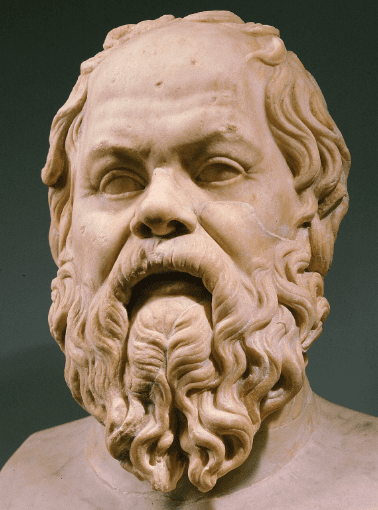
Who was Socrates?
- Lived in Greece around 2400 years ago.
- Renowned philosopher and teacher.
- Believed wisdom and honesty were more valuable than wealth or fame.
- Famous for the saying: "Know yourself."
Teaching Methods
- Did not write books; taught through conversations.
- Engaged young people by asking questions to encourage thinking.
- Wanted people to think critically about life and discover truth through reasoning.
Reputation and Beliefs
- Considered the wisest man in Greece, although he claimed not to have all the answers.
- Believed in questioning common beliefs rather than accepting them without thought.
- Opposed superstition and emphasized the search for truth.
Socrates’ Trial and Death
- Made enemies due to his habit of questioning established beliefs.
- Accused of disrespecting the gods and misleading the youth.
- Faced trial and was sentenced to death.
- Accepted his fate calmly and drank poison while continuing to discuss life after death with his followers.
Legacy
- Plato, a famous student of Socrates, recorded his teachings in a book called the Dialogues.
- Key teachings of Socrates:
- Be honest and fearless.
- Think critically and don't accept things without questioning.
- Avoid believing in superstitions.
- Always search for the truth.
- Use your mind and think carefully to understand what is true.
Abraham Lincoln (1809-1865)
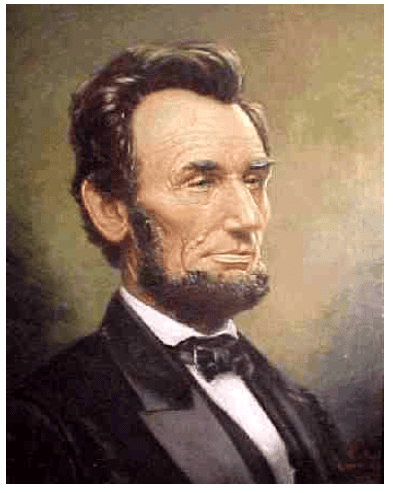
Birth and Early Life:
- Born in 1809 in the United States.
- Father was a farmer; mother passed away when he was nine.
- Had a happy childhood on his father's farm.
- Self-taught, learning to read and write on his own.
Career and Politics:
- Studied law independently and became a lawyer.
- In 1856, joined the Republican Party, which opposed slavery.
Presidency:
- Elected President of the United States in 1860.
- Faced unrest in the country due to slavery, where African people were enslaved and had no rights.
- Strongly believed in freedom and equality for all.
Civil War and Achievements:
- Led the country through the Civil War, maintaining unity.
- Successfully ended slavery, ensuring freedom for all slaves.
Second Term and Assassination:
- Re-elected as President in 1865, aiming to bring peace to the country.
- Tragically, he was shot on April 14, 1865, in a theatre before starting his second term.
Legacy:
- Remembered as a hero who fought for equality and freedom for all people.
Karl Marx (1818-1883)
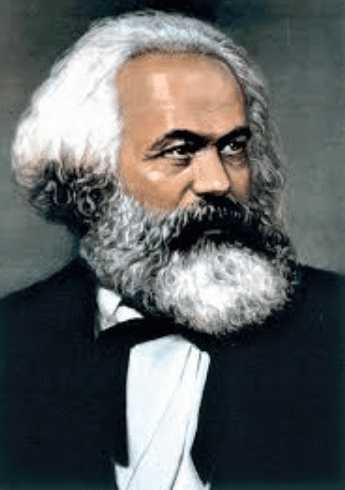
Early Life and Background:
- German economist, political thinker, and revolutionary.
- One of the founding figures of communism.
Career and Writing:
- In 1842, became the editor of a newspaper.
- Wrote articles on economic and social issues, leading to the paper being banned.
- Authored the book Das Kapital, where he boldly expressed his views on economics and society.
Observations on the Industrial Revolution:
- The Industrial Revolution in Europe widened the gap between the rich and the poor.
- Industrialists sought bigger profits and paid workers very little.
- This resulted in a divided society: capitalists (wealthy) and workers (poor).
Marx's Revolutionary Ideas:
- Upset by this social injustice, Marx believed that capitalists oppressed workers.
- Predicted that workers would eventually rise against the capitalists.
Impact and Legacy:
- Marx’s ideas inspired Communist revolutions worldwide.
- His thoughts served as a warning to the rich not to exploit the poor.
Mahatma Gandhi (1869-1948)
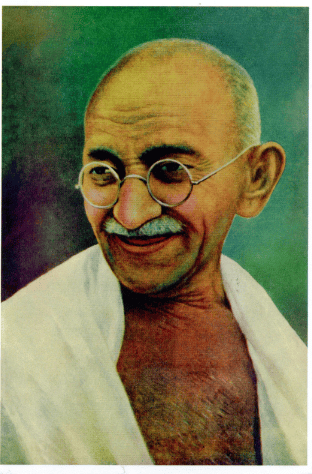
- Full Name: Mohandas Karamchand Gandhi
- Title: Known as Mahatma, meaning 'Great Soul' for his kind nature and simple life
- Birth: October 2, 1869, in Porbandar, Gujarat
- Education: Studied law in London and became a barrister
- Legal Career: Started practicing law in Mumbai
Mahatma Gandhi’s Fight for Justice
South Africa:
- Visited South Africa for a case, where he witnessed the poor treatment of Indians and Black Africans under white rulers
- Stayed for 21 years to fight against this injustice
- Called his struggle Satyagraha (meaning 'insistence on truth')
- Was imprisoned many times but continued his peaceful protest
- Won several rights for the Indian community in South Africa
Return to India and Fight for Freedom
- Return to India: In 1914, Gandhi returned and saw the poor conditions under British rule
- Leadership:
1. Urged Indians to rise against British oppression
2. Advocated for peaceful and non-violent resistance
3. Inspired large numbers of people to follow his path of non-violence
4. He, along with many others, faced imprisonment
Weapons of Non-Violence
- Gandhi’s primary tools of protest were truth and non-violence, which proved stronger than British force
- Despite British violence, his followers and Gandhi himself remained peaceful
- Eventually, the British rulers left, and India gained independence on August 15, 1947
Father of the Nation
- Gandhi was recognized for fighting not just against the British but also against social evils like untouchability
- He worked for the upliftment of women and equality among all religions
- Emphasized that all men are children of the same God and urged people to give up narrow ideas
Assassination
- Gandhi's ideas were not accepted by everyone, especially his views on treating Hindus and Muslims equally
- Nathuram Godse did not agree with Gandhi’s philosophy and shot him dead on January 30, 1948, at Birla House, New Delhi
Legacy
- Gandhi’s teachings of truth, love, peace, and non-violence have made him a timeless figure
- He is fondly remembered as the Father of the Nation and an inspiration to the world
Martin Luther King (1929-1968)
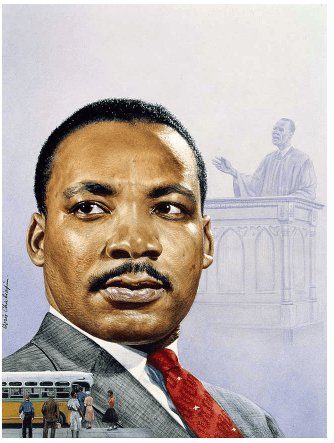
Early Life and Background:
- An American clergyman.
- Faced humiliation due to being a person of color.
- Shocked by the unjust treatment of colored people in the U.S.
Fight for Civil Rights:
- Decided to fight for the rights of colored individuals.
- Though slavery had been abolished, discrimination persisted.
- Colored people were denied entry to certain places and faced segregation, even on public transport.
- King strongly opposed such injustices and aimed to continue the work started by Abraham Lincoln.
Activism and Leadership:
- Travelled across the United States, delivering inspiring lectures.
- Led peaceful demonstrations, advocating for non-violence like Mahatma Gandhi.
- Faced multiple arrests and life-threatening situations due to his activism.
Achievements and Recognition:
- Awarded the Nobel Peace Prize in 1964.
- Donated the prize money to the Civil Rights Movement.
Legacy and Death:
- Despite opposition, King continued his peaceful fight for equality.
- On April 4, 1968, King was assassinated at the age of 39.
Connection to India:
- Visited India, describing it as a pilgrimage to honor Mahatma Gandhi's land.
|
33 videos|264 docs|50 tests
|
FAQs on Great Philosophers / Nobel Laureates Class 5 Notes SST
| 1. Who was Socrates and why is he important in philosophy? |  |
| 2. What were Abraham Lincoln's contributions to society? |  |
| 3. How did Karl Marx influence modern political thought? |  |
| 4. What did Mahatma Gandhi advocate for in India? |  |
| 5. How did Martin Luther King Jr. contribute to the civil rights movement? |  |















